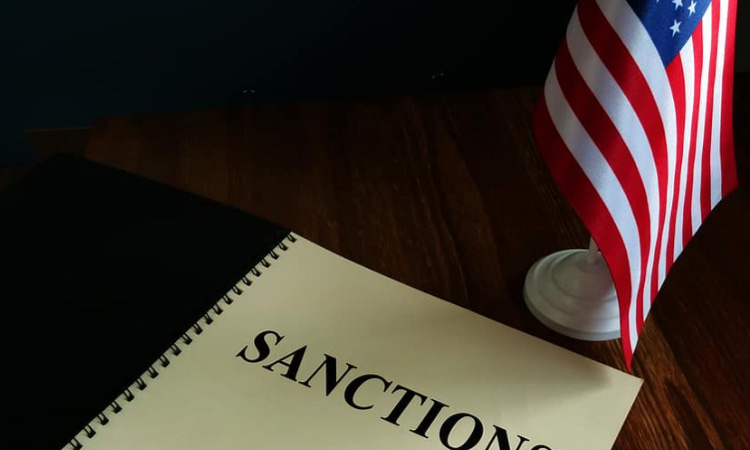
Once again, the U.S. Department of State issued orders against four companies to prevent them from delivering missile-related commodities to Pakistan’s ballistic missile program in an effort to restrict the proliferation of missile technology. Firstly, it is crucial to analyze the assertion that Pakistan is developing and manufacturing missiles. Pakistan vehemently contests US accusations that its secret agencies are engaged in terrorism, raising questions about the veracity of the evidence and the underlying motivations behind the sanctions. Secondly, do these restrictions truly stem from concerns about their so-called nuclear non-proliferation, or do they mask deeper geopolitical targets? Therefore, it is crucial to evaluate the reasons for and effects of US sanctions against Pakistan’s entities.
Pakistan is no stranger to the US sanctions, which have been repeatedly imposed without logical justification. Since its inception, the US has imposed sanctions on Pakistan several times, which include the Pressler Amendments in 1990, the Nonproliferation Sanctions in 2005, the Kerry-Lugar-Berman Act in 2009, the Financial Action Task Force (FATF) Grey Listing, the suspension of military aid in 2018, and the designation of Pakistani entities as Specially Designated Global Terrorists (SDGT) due to their alleged support for militant organizations and involvement in nuclear proliferation. This seems to be very much part of the fact that Pakistan-US relations were again hit by another bad news story with the sanction imposed on four Pakistani companies. Among these allegations, some concern the sanctions, reportedly because of their connection with missile development, which Pakistan strongly refutes. But it is a vortex of geopolitical dynamics, economic interests, and strategic calculations that are concealed behind all these sanctions. Pakistan finds itself in the crosshairs of geopolitical chess and needs to identify the genuine motives behind the subsequent punishments it faces.
A potential motive behind sanctioning Pakistan is very obvious that is, the US views China as its primary adversary. Pakistan, being China’s close neighbor and trade partner, becomes a target. Conversely, China and Pakistan do not have stable relations with India. In this geopolitical context, the US follows the principle “the enemy of my enemy is my friend” by aligning with India to counter China’s influence. According to the analysis of Mr. Zamir Akram, the former Ambassador of Pakistan, the US overlooks and even supports India’s military expansion while demanding unilateral restraint from Pakistan. This double standard aims to empower India as a “Net Security Provider” against China, thereby limiting Pakistan’s capabilities so India can focus on countering China.
Also, the arguments raised by Pakistan’s officials that the US’ actions reek of hypocrisy and double standards. Comparing the trade and alliances of Pakistan with those of the mother states of the sanctioned companies reveals glaring inconsistencies in US foreign policy. While the US justifies its actions under the guise of nuclear non-proliferation, it conveniently turns a blind eye to its own partnerships with countries like Australia, the UK, and India in formal (Quadrilateral Security Dialogue, the QUAD) and informal (the SQUAD) alliances, which have nuclear capabilities. In addition, Pakistan’s delayed membership in Nuclear Suppliers Group (NSG) has contributed to furthering criticisms against the US. That is why, due to the constant pressure from the US and the continued violation of non-proliferation norms in Pakistan, it had to work on the improvement of various nuclear safety measures. This selective approach makes a mockery of the nuclear states and further erodes the US’ standing in the present world.
There might be another reason for the US sanctions, namely, Pakistan’s engagement in the Iran-Pakistan (IP) Gas Pipeline. Continuing this project even after the disapproval of the US might have angered some people within the US administration, resulting in punitive actions. The IP Gas Pipeline carries natural gas from Iran to Pakistan with the aim of assisting Pakistan to meet its energy deficiencies. Nevertheless, the US has always been against this project based on the general sanctions it has imposed on Iran and its antagonistic attitude toward Iran’s hegemonial role in the Middle East region. Additionally, asserting a firm economic and strategic relationship between Pakistan and Iran may be viewed as a threat to the US due to the historical enmity of the US-Iran relations and the Iran-Israel relations. The U.S. opposes developments that boost Iran’s economy or regional influence, as this undermines U.S. and Israeli strategic policies. Indeed, could these sanctions be a way of preventing the emerging amity between Pakistan and Iran?
While the cited concerns are nuclear non-proliferation and missile development, the sanctions demonstrate a set of intersectional affiliations of geopolitical and strategic territorial identities, cordial relations, and economic integration. Thus, while the US qualifies Pakistan as an unsafe country due to proliferation concerns, making sanctions its response, it is forming its own alliances, for instance, the future SQUAD. People are starting to doubt certain evidence about US policymaking in the Middle East and the aftermath that the region will see soon. In the future, it will be crucial for the US and Russia to develop strategies and have open discussions about certain issues that are essential for making the relations between the two countries constructive and beneficial. Thus, fairness and impartiality should be given top priority in US diplomatic relations as a global leader. This can be achieved by treating all states fairly, avoiding prejudice, and encouraging international collaboration and trust.
